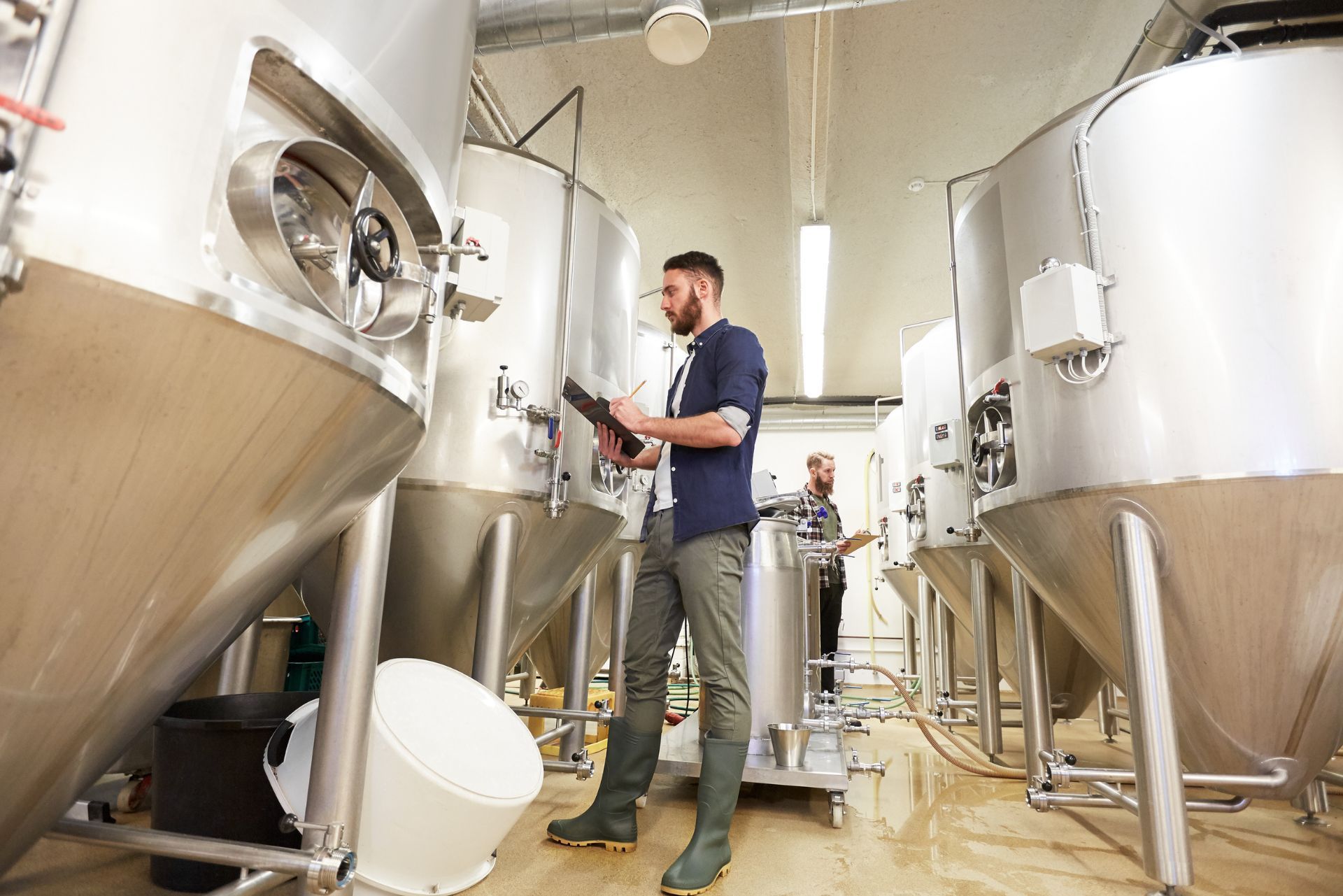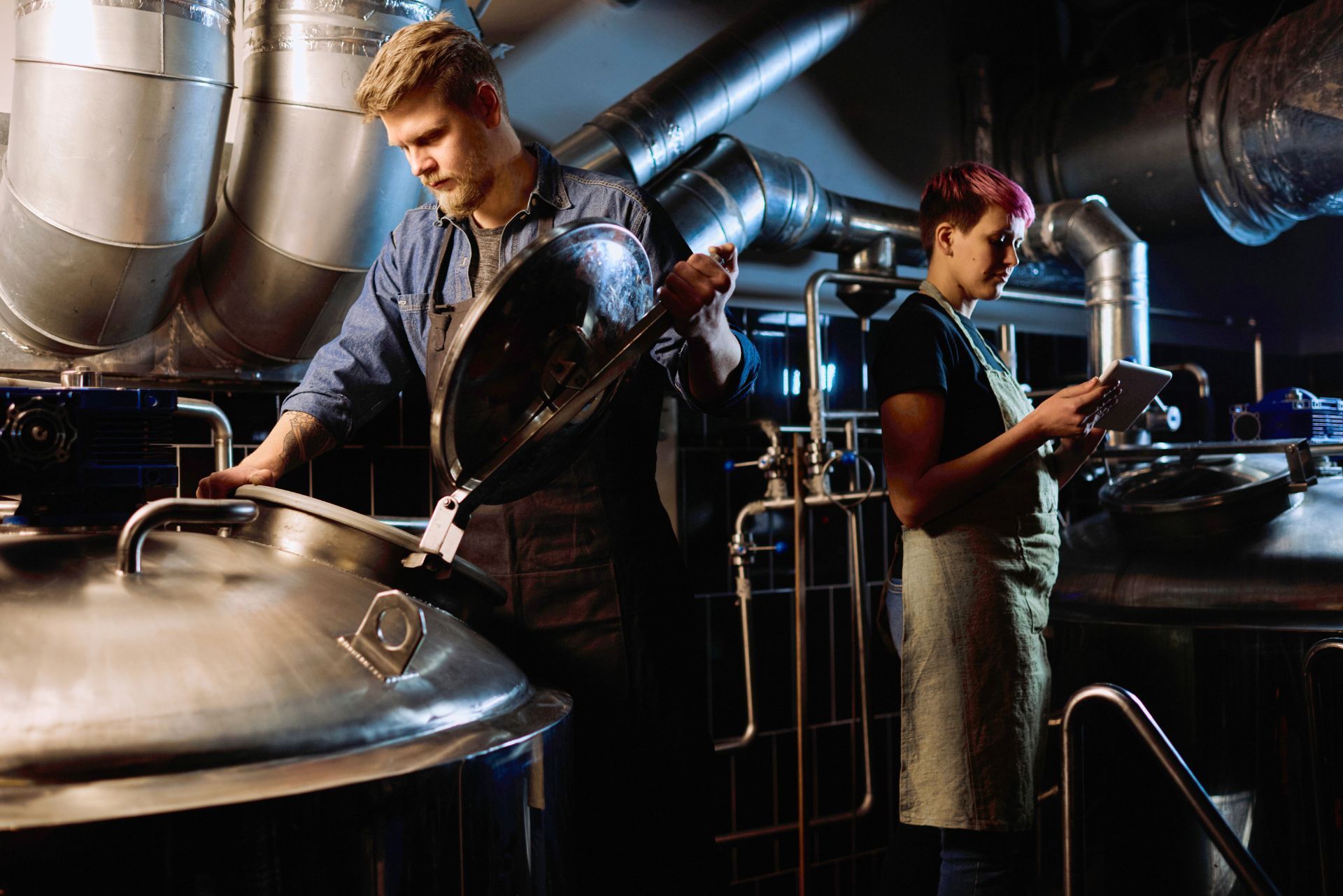Top 3 Recommended Policies

The craft beverage scene in New York State has experienced remarkable growth over the past decade, with breweries and distilleries flourishing across the region. This booming industry not only contributes significantly to the economy but also brings unique challenges and risks that require specialized insurance coverage. Whether you’re a brewery owner, a distillery operator, or an entrepreneur planning to enter this vibrant market, understanding the nuances of brewery and distillery insurance is essential to protect your business and ensure long-term success.
With the number of breweries in New York increasing from 95 in 2012 to over 535 in 2023, the demand for tailored insurance solutions has never been higher. New York’s craft beer industry alone generates nearly $4 billion in economic impact, underscoring the importance of safeguarding these valuable enterprises through comprehensive insurance policies. For more detailed insights on the industry’s growth, the New York State Brewers Association provides excellent resources.
Understanding the Unique Risks of Breweries and Distilleries
Breweries and distilleries face a variety of risks that differ from many other types of businesses. From production hazards to product liability, these risks require specialized coverage to mitigate potential financial losses.
One of the primary concerns is the manufacturing process itself, which involves flammable liquids, heavy machinery, and complex chemical reactions. Distilleries, in particular, handle high-proof alcohol that poses fire and explosion risks. Additionally, breweries must manage risks related to fermentation tanks, bottling lines, and storage facilities. These operational hazards necessitate robust property and equipment insurance.
Another critical area is product liability. If a consumer experiences illness or injury due to contaminated or defective products, the brewery or distillery could face costly lawsuits. Given the rising number of craft breweries in New York—now ranking second in the nation with 539 establishments according to Cornell University—the potential exposure to product liability claims is significant.
Employee and Premises Liability
Workplace injuries are another considerable risk. Breweries and distilleries employ skilled laborers who operate heavy equipment and work in environments with slippery floors and hazardous materials. Workers’ compensation insurance is essential to cover medical expenses and lost wages for injured employees.
Furthermore, premises liability insurance protects businesses from claims arising from accidents occurring on their property, such as slip-and-fall incidents involving customers or visitors. Given the increasing number of employees in the industry—expected to reach over 4,700 by 2025 as projected by IBISWorld—this coverage is vital to avoid costly legal disputes.
In addition to these risks, breweries and distilleries must also navigate the complexities of regulatory compliance. The Alcohol and Tobacco Tax and Trade Bureau (TTB) imposes strict regulations on production, labeling, and distribution. Non-compliance can lead to hefty fines and even the suspension of a business's operating license. As the craft beverage industry continues to grow, staying informed about changes in legislation and ensuring adherence to safety standards is paramount for business owners.
Moreover, the environmental impact of brewing and distilling processes cannot be overlooked. Wastewater management and the disposal of byproducts are critical issues that breweries and distilleries must address to prevent environmental contamination. Implementing sustainable practices not only helps mitigate these risks but can also enhance a business's reputation among increasingly eco-conscious consumers. As more establishments seek to position themselves as environmentally friendly, the integration of green technologies and practices can serve as a competitive advantage in the market.

Key Types of Insurance for Breweries and Distilleries
To adequately protect a brewery or distillery, several types of insurance policies should be considered. Each addresses different aspects of risk and collectively forms a comprehensive safety net.
1. General Liability Insurance
This is fundamental coverage that protects against third-party claims of bodily injury, property damage, and personal injury. It covers incidents such as a customer slipping on a wet floor or damage caused to another business’s property. Without this insurance, a single accident could result in devastating financial consequences. Additionally, general liability insurance can also cover legal fees if a lawsuit arises, which can be particularly costly and time-consuming for small businesses. It’s essential for breweries and distilleries to maintain a safe environment not only for patrons but also for employees, as incidents can lead to reputational damage that could affect future business.
2. Property Insurance
Property insurance covers damage to buildings, equipment, inventory, and supplies caused by events like fire, theft, or natural disasters. Given the high value of brewing and distilling equipment, this coverage is crucial. For distilleries, which handle flammable materials, ensuring adequate property coverage is even more important. Furthermore, breweries often have large quantities of raw materials and finished products on-site, making it vital to protect against losses that could disrupt production. In addition to standard coverage, breweries and distilleries might consider adding endorsements for specific risks, such as equipment breakdown or spoilage of perishable inventory, to enhance their protection.
3. Product Liability Insurance
This protects against claims related to the products sold, such as contamination or adverse reactions. Considering the growth of New York’s craft beer industry and the increasing number of distilleries—over 160 active distilleries with a 60% growth since 2016 as reported by the New York State Distillers Guild—this insurance is indispensable for mitigating risks associated with product safety. Additionally, with the rise of consumer awareness regarding health and safety standards, having robust product liability insurance can enhance a brewery's credibility and consumer trust. This coverage not only protects against financial loss but also helps in managing the fallout from negative publicity, which can be particularly damaging in the age of social media.
4. Workers’ Compensation Insurance
Required by law in most states, this insurance covers medical costs and lost wages for employees injured on the job. Given the physical nature of brewery and distillery work, this coverage protects both the business and its workforce. Moreover, providing a safe working environment and having workers’ compensation insurance can improve employee morale and retention, as workers feel valued and secure in their roles. Breweries and distilleries can also benefit from implementing safety training programs, which can reduce the likelihood of workplace accidents and potentially lower insurance premiums over time.
5. Business Interruption Insurance
This coverage helps replace lost income if the brewery or distillery must temporarily close due to a covered event like a fire or natural disaster. It ensures that fixed costs such as rent and payroll can still be paid during downtime. In an industry where production schedules can be tightly packed, any interruption can lead to significant financial strain. Business interruption insurance can also cover the costs associated with relocating operations temporarily, which can be a vital lifeline for businesses facing unexpected disruptions. Additionally, breweries and distilleries should evaluate the duration of coverage needed, as the time it takes to recover and resume normal operations can vary significantly based on the nature of the incident.
Why Specialized Brewery & Distillery Insurance Matters
While general business insurance policies might offer some protection, breweries and distilleries benefit greatly from specialized insurance designed to address their unique risks. Standard policies often exclude coverage for certain alcohol-related liabilities or production hazards, leaving gaps that can be costly.
Specialized policies typically include coverage for equipment breakdown, spoilage of raw materials, and contamination issues—risks that are particularly relevant in beverage production. Additionally, these policies often offer higher liability limits tailored to the industry’s exposure.
With New York’s craft beer industry expected to generate over $3 billion in revenue by 2025 and expand to 560 breweries, according to IBISWorld, the stakes are high. Proper insurance safeguards not only physical assets but also the business’s reputation and financial future.
Moreover, the craft beverage industry is characterized by its rapid growth and innovation, which can introduce new risks that traditional insurance policies may not adequately cover. For instance, the rise of experimental brewing techniques and the use of unconventional ingredients can lead to unforeseen liabilities. Specialized insurance can provide coverage for these innovative practices, ensuring that breweries and distilleries can explore creative avenues without the fear of financial ruin due to an accident or mishap.
Furthermore, as consumer preferences shift towards sustainability and local sourcing, many breweries are investing in eco-friendly practices and technologies. This transition, while beneficial for the environment and brand image, can also present unique risks, such as the potential for equipment failures related to new green technologies. Specialized insurance policies can be tailored to include coverage for these emerging risks, allowing businesses to embrace sustainability while remaining protected against potential setbacks.
Factors Influencing Insurance Costs for Breweries and Distilleries
Insurance premiums for breweries and distilleries vary widely based on several factors. Understanding these can help business owners manage costs while ensuring adequate coverage.
Production Volume and Revenue
Larger breweries with higher production volumes and revenues typically face higher premiums due to increased risk exposure. For example, New York’s craft beer industry, with its nearly $4 billion economic impact, reflects a broad range of business sizes that influence insurance needs. As production scales up, the potential for accidents, equipment failure, or product recalls also rises, prompting insurers to adjust their rates accordingly. Furthermore, breweries that export their products internationally may encounter additional complexities in their insurance needs, as they must navigate different regulations and risks associated with global distribution.
Location and Building Type
Urban breweries in densely populated areas may face higher liability risks than rural operations. The type of building, its age, and fire protection systems also affect property insurance rates. For instance, a brewery located in a historic building might have to contend with stricter regulations and higher costs associated with maintaining the structure's integrity while also ensuring compliance with modern safety standards. Additionally, environmental factors such as flood zones or earthquake-prone areas can further complicate insurance assessments, leading to increased premiums to cover potential natural disasters.
Safety and Risk Management Practices
Implementing strong safety protocols, employee training, and risk mitigation measures can reduce premiums. Insurers often reward businesses that demonstrate proactive risk management. For example, breweries that conduct regular safety audits or invest in advanced brewing technology to minimize hazards may find themselves eligible for discounts. Moreover, fostering a culture of safety among employees not only protects workers but also enhances the overall operational efficiency of the brewery, ultimately contributing to lower insurance costs.
Product Range and Distribution
Breweries and distilleries with diverse product lines or extensive distribution networks may require broader product liability coverage, impacting costs. The inclusion of specialty products, such as limited-edition craft brews or high-proof spirits, can introduce unique risks that necessitate tailored insurance solutions. Additionally, businesses that engage in direct-to-consumer sales or operate tasting rooms may face different liability exposures compared to those that solely distribute through wholesalers. Understanding these nuances is crucial for business owners to ensure they are adequately covered without overpaying for unnecessary policies.

How to Choose the Right Insurance Provider
Selecting an insurance provider experienced in the craft beverage industry is crucial. Look for companies that understand the specific risks breweries and distilleries face and offer tailored policies. These providers should have a solid grasp of the unique challenges that come with brewing and distilling, such as equipment breakdowns, product recalls, and regulatory compliance issues. A provider with industry expertise will not only offer better coverage options but also provide valuable insights into risk management practices that can help mitigate potential losses.
Consider providers who offer comprehensive packages combining general liability, property, product liability, and workers’ compensation. Additionally, inquire about coverage for emerging risks such as cyber liability or environmental claims, which are increasingly relevant. As the craft beverage industry continues to embrace technology for operations and marketing, the risk of cyberattacks grows. Ensuring your insurance provider offers robust cyber liability coverage can protect your business from the financial fallout of data breaches or system failures. Furthermore, environmental claims are becoming more prominent as sustainability becomes a priority for consumers and regulators alike, making it essential to have coverage that addresses these potential liabilities.
Working with an insurance broker specializing in craft beverage businesses can also help navigate policy options and secure competitive rates. Given the growth projections for New York’s brewery and distillery sectors, partnering with knowledgeable insurers ensures your business remains protected as it expands. A broker can provide insights into industry trends and help you understand the nuances of different policies, ensuring you select the coverage that best fits your operational needs. Additionally, they can assist in negotiating terms and premiums, potentially saving you money while enhancing your coverage. It’s also beneficial to seek out testimonials or case studies from other craft beverage businesses that have successfully navigated the insurance landscape, as these can offer practical examples of what to look for in a provider and the types of coverage that have proven most beneficial in real-world scenarios.
Conclusion: Protecting Your New York Brewery or Distillery for the Future
The craft brewery and distillery industries in New York State are thriving, with the number of breweries alone growing from 95 in 2012 to over 535 in 2023. This expansion brings exciting opportunities but also heightened risks that demand specialized insurance solutions. From protecting valuable equipment and inventory to managing liability and employee safety, comprehensive brewery and distillery insurance is indispensable.
With the industry’s economic impact nearing $4 billion and employment steadily increasing, safeguarding your business with the right coverage is a smart investment. For those looking to dive deeper into the economic trends and forecasts of New York’s craft beverage sector, Cornell University’s recent studies offer valuable insights.
Ultimately, securing tailored insurance not only protects your assets but also provides peace of mind, allowing you to focus on what matters most: crafting exceptional beers and spirits that contribute to New York’s vibrant and growing craft beverage community.
Contact Us
Phone
Location
